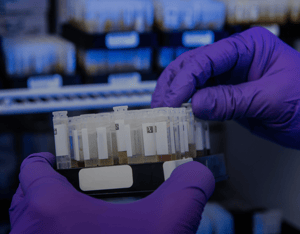Are your genes your destiny?
Our genetic makeup, inherited from our parents, plays a significant role in shaping various aspects of our health. Genes can indeed indicate the risk of developing certain conditions, ranging from cardiovascular diseases to mental health disorders. However, it is crucial to recognize that genes are not the sole determinants of our destiny when it comes to health. Researchers estimate that genetics only accounts for 25% of the variability in human longevity1. Lifestyle choices and environmental factors wield considerable influence in determining whether these genetic risks materialize into actual health conditions.
Firstly, our lifestyle choices such as diet, exercise, smoking habits, and stress management greatly impact our health outcomes. For example, someone with a genetic predisposition to heart disease can significantly reduce their risk by adopting a heart-healthy diet, engaging in regular physical activity, and avoiding tobacco use. These lifestyle modifications can mitigate the genetic risk factors and promote better cardiovascular health.
To this point, a recent study published in BMJ Evidence-Based Medicine investigated the extent to which a healthy lifestyle counterbalances genetics using data from over 353k participants2. The study found that people who are carriers of life shortening genes can reduce their risk of early death by up to 60% and even add another 5.2 years to their life using a healthy lifestyle to offset the impact of genetics. And those following an unhealthy lifestyle, as defined by smoking, excessive alcohol consumption, low physical activity, poor sleep, and an unhealthy diet, increased mortality by 78% compared to participants following a healthy lifestyle, regardless of genetic risk.
Secondly, environmental factors also play a pivotal role in gene expression and health outcomes. Environmental factors encompass everything from exposure to pollutants and toxins to socio-economic conditions and access to healthcare. These factors can either exacerbate or alleviate the impact of genetic predispositions. For instance, individuals living in areas with high pollution levels may experience worsened respiratory symptoms if they have a genetic susceptibility to lung conditions.
Moreover, advancements in medical research have highlighted the concept of epigenetics, which explores how external factors can influence gene expression without altering the underlying DNA sequence. This field underscores the dynamic interplay between genes and the environment, emphasizing that our genetic destiny is not predetermined but subject to modulation based on our surroundings and lifestyle choices.
In essence, while our genes provide a blueprint for our health, they are not deterministic. The choices we make regarding our lifestyle and the environments we inhabit can either mitigate or exacerbate genetic risks for various health conditions. Promoting healthy lifestyle behaviors can lead to better health outcomes and reduce the notion that genes solely dictate our destiny.
1 https://immunityageing.biomedcentral.com/articles/10.1186/s12979-016-0066-z
2 https://doi.org/10.1136/bmjebm-2023-112583
About the Author
Dr. Fehling has been with CRL since 2008 and is a certified High Complexity Laboratory Director by the American Board of Bioanalysis (ABB). Dr. Fehling serves as the Laboratory Director for CRL’s Molecular Diagnostics/Esoteric Laboratory. More broadly, Dr. Fehling provides scientific leadership across all business units at CRL with her extensive experience in laboratory management, new assay development, and business development.






